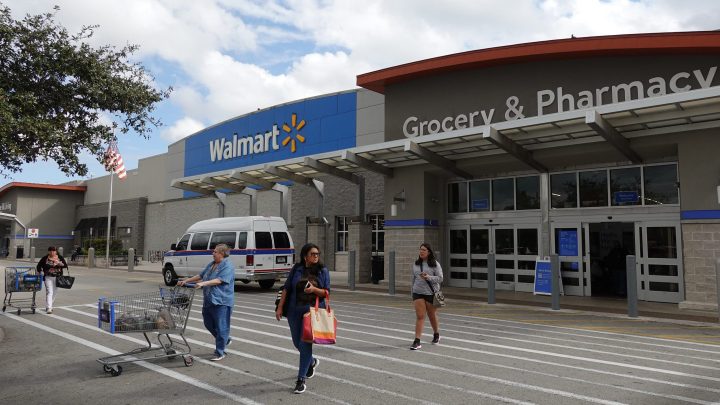
Big box stores go big on renovations to tempt shoppers

A bunch of big box brands are investing more in their stores, including Target, JCPenney and Walmart, which tops the list. The retailer has spent $9 billion in the past two years upgrading more than 1,400 stores, some of which are now having their grand re-openings. That’s a big change after, in the years since the pandemic began, many retailers made investments in online shopping.
Have you ever had that frustrating thing happen when you’re shopping at a store you’re familiar with, but it’s not a location you know well? So you spend an absurd amount of time looking for something totally mundane, like Q-tips?
Katrijn Gielens, a marketing professor at UNC Chapel Hill, said that’s a big box experience that sticks with shoppers.
“‘Oh god I need toothpaste. Oh I’m not going to pick it up at Walmart. It’s way too big. Let me sort of quickly go to whatever other type of retailer,'” Gielens said.
Endless aisles. They’re Walmart’s strength — but also its weakness.
“And that’s why you see all these investments in the frictionless part,” Gielens said.
Frictionless item hunting, with a store app that tells you what aisle a product is in. Frictionless pricing, with digital shelf labels. Frictionless pickup orders, with dedicated parking spots, drive up lanes and counters. David Bassuk, who leads the retail practice at Alix Partners, said this tech-driven customer service is no longer novel.
“Consumer expectations just keep growing, which is the challenge retailers face,” Bassuk said.
He said people increasingly want to shop in person again, but they’ve gotten used to the efficiency of shopping online, so they’re less patient than ever.
Brands need to get ahead of customers’ frustrations, said Thomas McMillan, who directs the Center for Retailing Studies at Texas A&M.
“There’s so much change going on I think that if retailers don’t start making these changes they are going to be left behind,” McMillan said.
He said even the biggest stores typically need some kind of refresh every five to seven years. And now, when consumers’ wallets are pinched, is the best time.
“There’s a common phrase that you should be investing at a time when there’s a recession or when there’s a drop,” McMillan said.
It’s unclear if there will be a recession. But if there is? The stores that have invested in the future will be better positioned when people are ready to come in and spend.
There’s a lot happening in the world. Through it all, Marketplace is here for you.
You rely on Marketplace to break down the world’s events and tell you how it affects you in a fact-based, approachable way. We rely on your financial support to keep making that possible.
Your donation today powers the independent journalism that you rely on. For just $5/month, you can help sustain Marketplace so we can keep reporting on the things that matter to you.











